African American Studies Alumni Out In The World
-

Martha Haakmat ‘87
Head of School
Brooklyn Heights Montessori School
MA in Education at Bank Street College of Education
Read MoreMartha Haakmat is the head of school at Brooklyn Heights Montessori School. Martha has been an educator for 32 years and also directed a diversity consulting group called EDGE, Educators for Diversity, Growth and Empowerment. She continues to be involved in work for equity and social justice in schools. She became interested in the independent school system because she saw that there were very few PoC in Independent schools and she felt that there was a great need for more of them. Independent schools are mostly white and wealthy and she wanted to be a role model for kids of color. Private school has given her a place where she could develop a curriculum and foster change.
African American Studies at Wesleyan has guided Martha in her work in critical race theory and as an educational leader. AFAM gave her a good grounding in herself, especially when thinking about equity and social justice. She felt like AFAM was wholly connected to real life and connected to self discovery, which allowed for mental and emotional exploration. For most people who grew up in predominantly white towns, the depths to black studies is nonexistent. Martha notes that she was hungry for this information and it was a gift and great revelation.
Martha Haakmat’s advice to current AFAM Majors: Work harder, learn more and take advantage of all the resources.
-
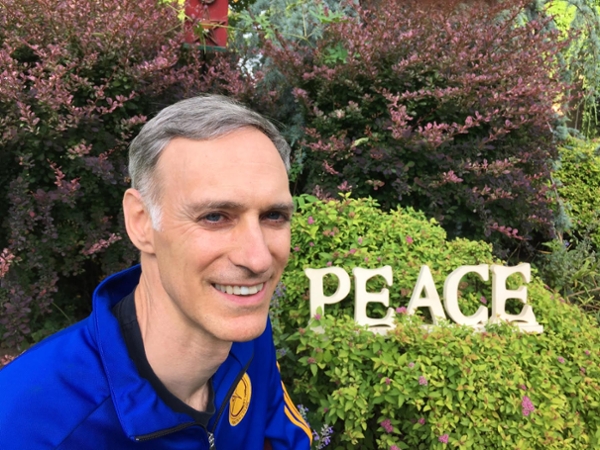
Ethan Vesely-Flad '89
Director of National Organizing
Fellowship of Reconciliation
Read MoreEthan is the Director of National Organizing at the Fellowship of Reconciliation [FOR-USA], the oldest interfaith peace & justice organization in North America. FOR-USA focuses on working for racial & social justice, human rights, and ending war and militarism. Ethan became an African American Studies major as an outgrowth of his engagement in campus activism, especially efforts to dismantle racism (including through Students Organized Against Racism, aka SOAR) and to provide solidarity to the South African anti-apartheid movement. While at Wesleyan, he also co-conceived and co-created a student-led tutorial on the Black Panther Party, which was facilitated by AFAM and partly inspired by the Vanguard Class of 1969.
Ethan highlights that while his Wesleyan peers generally engaged in critical thinking, AFAM added a critical race theory framework vis-à-vis the roles of social movements, government, religion, and other institutions that maintain and wield power. He felt as if AFAM prepared him in many ways for a career in justice organizing, specifically in framing his views on intersectional resistance to structural oppression. Over the course of his career, he has been engaged in a range of global justice movements; studying African American history and Black politics has been an invaluable foundation. His AFAM professors, courses, and fellow majors grounded him in the process of bridging the academic-activist divide, and ensured that he was always in relationship to what was going on in the “outside” world beyond Wes.
Ethan Vesely-Flad’s advice to current AFAM Majors: Be rooted in the campus community but always seek to make connections beyond the classroom.
-
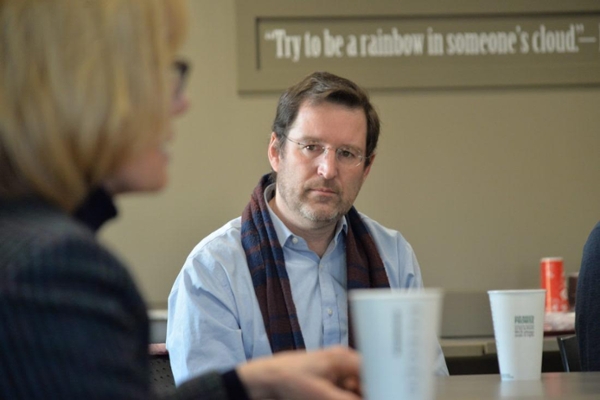
Michael Reinke ‘91
Executive Director
Nashua Soup Kitchen and Shelter
M. Div Union Theological Seminary '96 MBA Western Washington University '10
Read MoreMichael Reinke is the Executive Director for the Nashua Soup Kitchen and Shelter and he has been managing nonprofit organizations since attending seminary in New York City. He states he was influenced to attend seminary because of his AFAM education, saying “Certainly one of the reasons why I enrolled in seminary was that I remembered how involved communities of faith were in the social movements of our nation, especially of course, the civil rights movement.”
African American Studies at Wesleyan has both influenced and informed how Michael approaches his job and personal life. It has influenced his understanding of American History and how as an Executive Director, he and the shelter and the kitchen work with different groups of people. He notes growing up in an interracial family in a rural, conservative part of Massachusetts, that he often felt like an outsider and that when he came to Wesleyan there was a feeling of, “Oh here is a community here that looks more like my house growing up.” While it was easy to get lost in other larger majors, he felt like African American studies acted as a supportive family. He liked the introduction to how the African American history has an impact on the broader history of the United States. He recalls it as making him step out of his comfort zone.
Michael Reinke’s advice to current AFAM Majors: Study what you think is interesting! Get a well-rounded education and don’t worry about the “establishment track.”
-
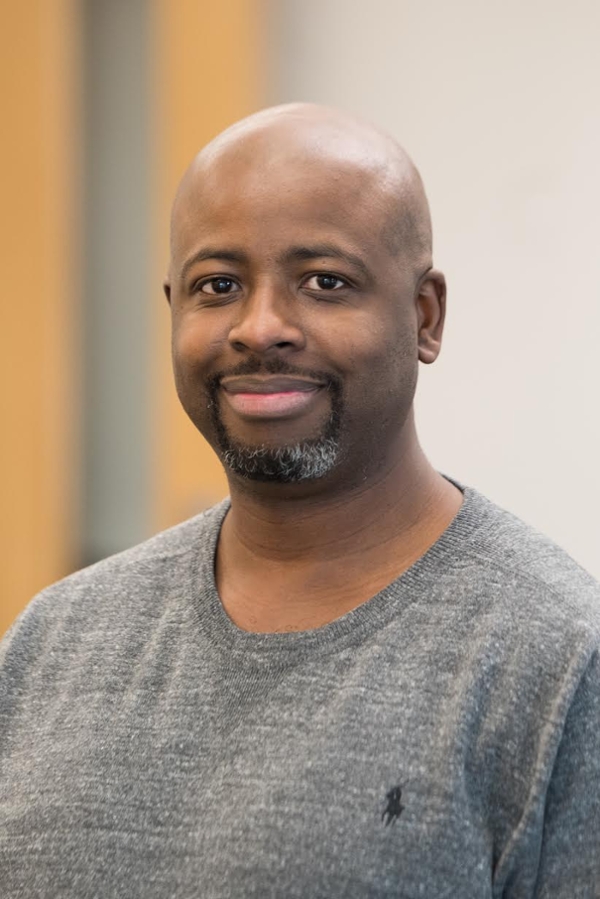
Markell Parker ‘98
Executive Director
Summer on the Hill
Read MoreMarkell Parker is currently the Executive Director of a nonprofit called Summer on the Hill offered at the Horace Mann school in the Bronx. It is a year-round academic enrichment program for bright, low-income students from The Bronx, Harlem, and Washington Heights. Before that, Markell was a Diversity Teacher and a nursery school teacher, focusing on social justice initiatives at the Horace Mann School. Into this work, he incorporated his knowledge of race, religion and history, and felt that Wesleyan gave him the opportunity to do so.
African American Studies at Wesleyan was crucial to the equity work that he did and is still doing. He specifically recalls looking at the artwork of Romare Bearden and Jacob Lawrence when teaching nursery school children and finding a way to give students access to black history. The reason he signed up for African American Studies in the first place was because he needed a place to learn more about himself and his identity. Nothing he had done before had given him the social and emotional satisfaction that he got in AFAM studies. It gave him significant perspective on history and the current American climate. AFAM meant absolutely everything to him; it was a way to connect the classroom to life beyond it.
-
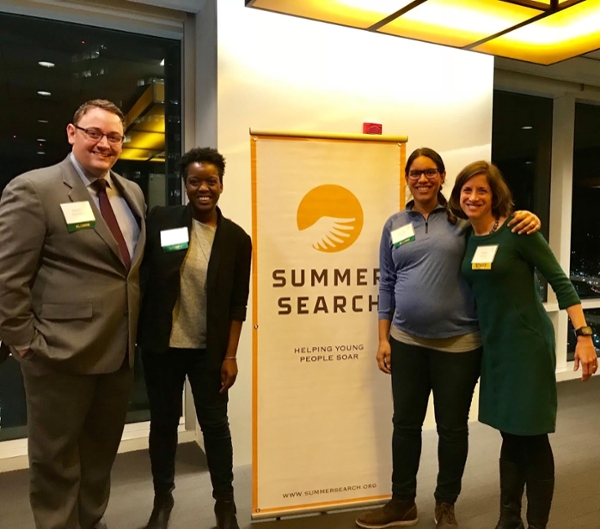
Emily Forester Edwards ‘99
Volunteer
Summer Search Leadership Council
Read MoreEmily Forester Edwards has worked for the same organization, Summer Search, since graduating from Wesleyan. Since 1999, she has worked in various leadership roles within Summer Search, and is now a proud volunteer for the Summer Search Leadership Council. This organization is committed to education equity for low-income youth of color. In April, Emily will be joining the Draper Kaplan Foundation, which does equity, justice, and anti-poverty work around the world. African American Studies shaped Emily’s understanding of America’s history as a racist, white supremacist culture, and inspired her commitment to dismantling systems of oppression both economic and racial. She states that this directly contributed to her commitment of over 19 years to Summer Search, which cultivates leaders who are in a unique position to use their education and professional successes to change communities, schools and systems.
Emily believes that AFAM helped her continue to discuss issues around race, privilege, and genderidentity with people from a variety of backgrounds. She says that when she first arrived at Wesleyan, she was struck by how segregated Wesleyan’s campus was. Her first educational experience made her realize that as a white woman she would likely socialize with mostly other white people unless she did something intentional to create opportunities to engage with communities of color.
-
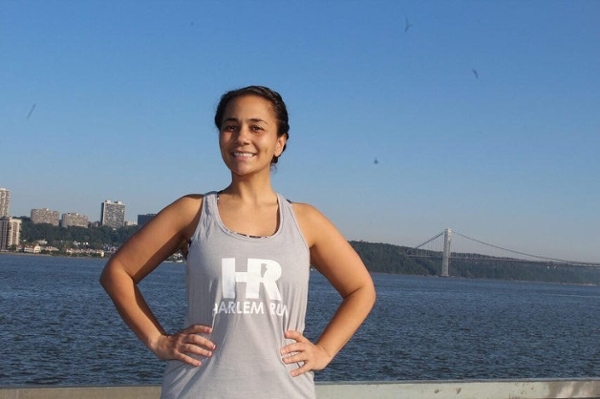
Dawn Papacena ‘02
Clinical Social Worker
Administration for Children’s Services in NYC
Masters New York University Silver School of Social Work
Read MoreDawn Papacena is a licensed clinical social worker that works as a Child and Family Specialist conference facilitator for the Administration for Children’s Services in NYC. She knew she wanted to do more work with children of color within society, particularly working with youth within the child welfare system. After college she states that she, “wanted to work with youth of color, kids in the city. I wanted to work with students like me.” She says most of the choices she made in her career have been based on her experience as an AFAM major at Wesleyan. It’s where she started to completely understand the roots and social construction of race and racism; after that, every job experience has included some sort of anti-racism work. She wanted to work exclusively with youth of color like herself and work on dismantling systems of oppression from the ground up. Dawn also notes that, as a Latina, she is always focusing on confronting anti-blackness in her community and she doesn’t think she would have had this awareness if it weren’t for being an AFAM major.
For Dawn, African American Studies classes at Wesleyan were so thought provoking and really were the first classes that spoke to her interests and the cultural issues she was aware of growing up. Dawn says that to her, African American Studies meant community. African American Studies primed Dawn for the work that she is in today, specifically when thinking about intersectionality and anti-racism. The intellectual work she was doing at ages 19 and 20 prepared her for the world. She learned how to think better. She states, “It was like something finally clicked between my education and life experiences.”
Dawn Papacena’s advice to current AFAM Majors: Trust you ability to do good work and do the work. Also, speak to your professors if you need help.
-
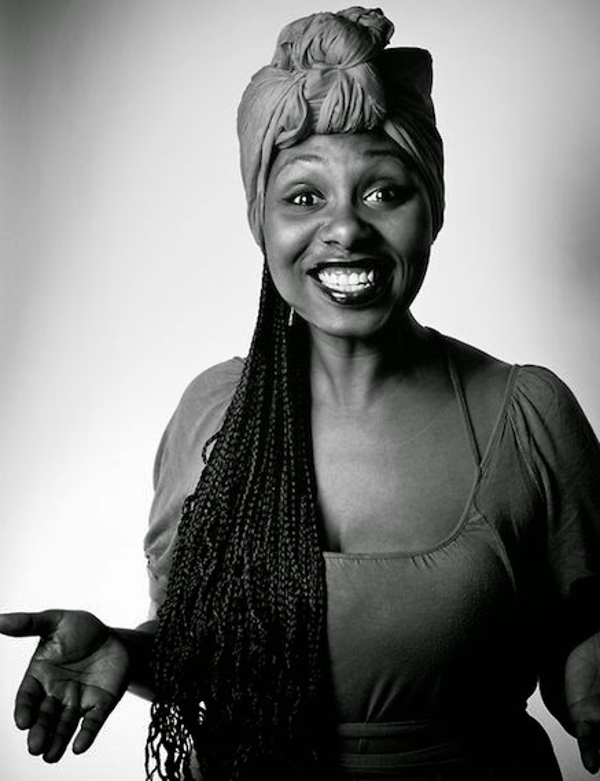
Sallomé Hralima ‘02
Filmmaker
Read MoreSallomé Hralima is in the middle of a transition from the nonprofit world to filmmaking. She is a founding member at The Future Project and helped create a new role in high schools known as the Dream Director. Simultaneously, she is working on a number of filmmaking projects, one of them specifically exploring hip-hop journalism.
While getting started in filmmaking, she discovered that every Black filmmaker she admired most had a degree in AFAM, AFAM Literature or Africana Studies. She believes that much of the most important black content we have been exposed to and grown up with is the result of students that got to study this culture in undergraduate and graduate levels, and now they have access to the tools they’ve needed to tell our stories through a medium that is powerful and accessible.
When thinking about how AFAM has impacted her, Sallomé stated, “As an AFAM major, you are constantly asking yourself how a particular thing does or does not support the thriving of the African American community. So, I now move through the world with that lense and it has enabled me to bring equity and cultural sensitivity to spaces that didn’t realize it was an issue or missing.” She felt like Wesleyan was an institution that encouraged trailblazing and curiosity and AFAM allowed her to pursue passion versus being worried about “a degree that was going to get me a high-paying job.” She was encouraged to take her history and culture seriously and that study was worth the investment. She attributes AFAM with giving her an unapologetic desire to be surrounded by black people on campus, which felt allowed and encouraged.
Sallomé Hralima’s advice to current AFAM Majors: Spend time exploring the intersections that AFAM has with all departments on campus and give your full revolutionary selves to the time that you are in.
-
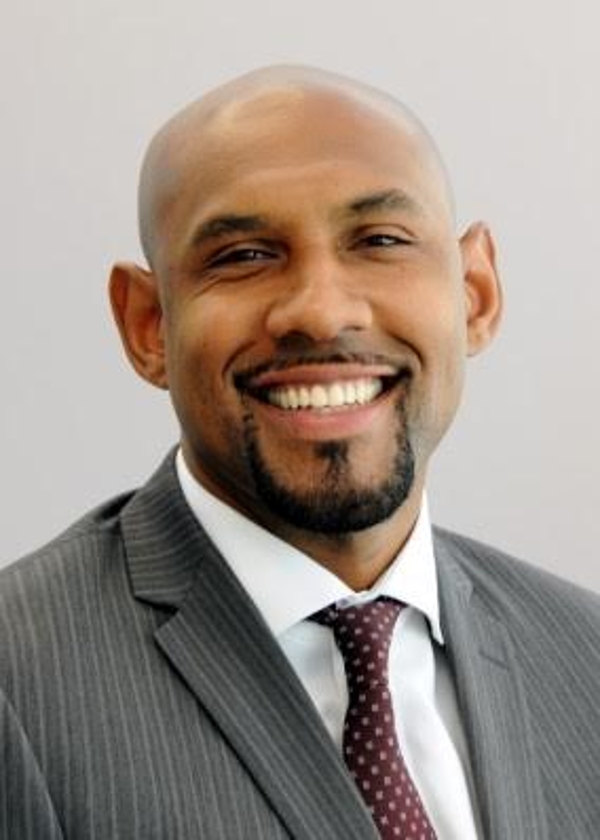
George Suttles ‘03
Managing Director, Director of Research
Commonfund Institute
MA in Public Administration (MPA) at Baruch College-City University of New York, MA in Philanthropic Studies at Indiana University-IUPUI
Read MoreGeorge Suttles is currently the Director of Research at Commonfund Institute which supports the educational, market research, and professional development activities of Commonfund, an asset management firm that creates investment solutions and access to managers for nonprofit long term institutional investors. In addition to this, he volunteers on the boards of several nonprofit organizations in New York City, as well as participating in leadership programs such as the Robert Sterling Clark Foundation Leadership Network, Association of Black Foundation Executives “Connecting Leaders” Program, and the Council of Urban Professionals Leadership Fellows Program.
Of his time at Wesleyan, George states that AFAM classes were his best classes as they completely transformed the way he related to and understood the world and his place in it as a black man. Wesleyan’s activist spirit allowed him to put that on full display. Speaking about the Vanguard Class and Fisk Takeover, he says, “The Vanguard Class paved the way for us on the campus, we held them in high esteem and always sought to recognize their place in Wesleyan’s history. The Fisk Takeover let us know it was possible to assert our agency as African Americans on the campus, and more importantly, that we belonged and our voices deserved to be heard.”
-
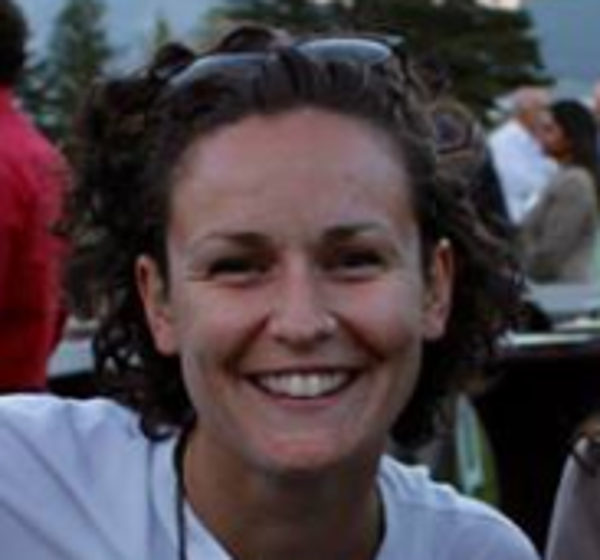
Molly O'Connell ‘09
Administrator
GreenDot, Los Angeles
MA in Secondary Science Education at City College of New York
Read MoreMolly O’Connell is an administrator in a charter school network in Los Angeles called GreenDot, which
serves low-income communities, majority Latinx and black middle and high school students. Molly came to Wesleyan to be a doctor, however, within her freshman year she took a couple of AFAM courses, which changed her and forced her to do a checking of bias. Molly feels as if AFAM shaped her to go into education. She remembers being pushed by her classes and how that influenced her perspective. She had always thought about education and while she was at Wesleyan she tutored at Woodrow Wilson Middle School. She remembers Modern African American History detailing information about education inequalities and she felt like the most immediate impact she could make was through the education system.
She was a double major in African American Studies and Religion. They both offered a critical lens for
understanding institutional oppression, and overlapped in their studies of mechanisms that are used to oppress or liberate people. African American Studies at Wesleyan taught Molly about the way power structures work in society. She was able to do a lot of work to understand roots of oppression and in her work as an educator she feels as if she has been given the tools to engage other adults in these conversations, like conducting diversity conferences on implicit bias. AFAM forced her to come to terms with her privilege in a way that she needed to. She felt like she found a lot of like-minded individuals that pushed her intellectually. AFAM was also a diverse social community that affected her for the rest of her life. Molly states, “Wesleyan turns you into an activist, and I wish I embraced that earlier and tighter.”
Molly O’Connell’s advice to current AFAM Majors: Take academic and social risks. Maximize your time by pursuing things you are interested in, as opposed to what you feel like you are obligated to do -
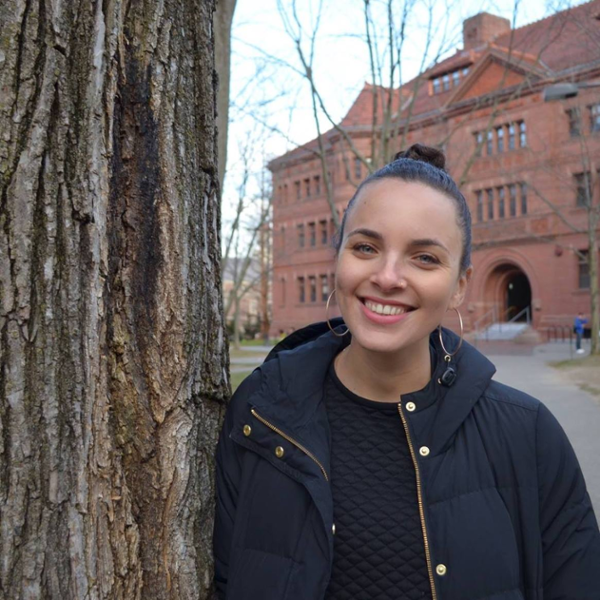
Elsa Hardy ‘14
Graduate Student
Currently in a PhD program in African American Studies at Harvard
Read MoreElsa is currently a PhD student studying African American Studies at Harvard. Her favorite classes at Wesleyan were her AFAM classes, and professors within those classes set her on the trajectory she’s on now. Wesleyan’s AFAM department is the reason why she chose to go to Wesleyan, and she came to think of it as her intellectual home. She says, “Fragmented as it was, the department––the faculty, students, and classes––grounded me, and provided me with a frame through which to view and understand the world.” While applying to graduate school, Elsa was advised to consider applying to other programs, but her experience at Wesleyan taught her the political and ideological importance of being affiliated with a program and using methodology that insists on centering the experiences of Black people.
Of the Fisk Takeover, Elsa states, “When I think of the Fisk Takeover and the Vanguard Class now, I think of them not in the way the administration likes to celebrate of them––as evidence of Wesleyan’s historical commitment to ‘diversity and inclusion’––but as testaments to how hard students have fought for the department and their place at the university to be taken seriously. As a student at Wesleyan I realized that this fight did not end with the Fisk Takeover; it is ongoing.”
If you are an AFAM alum, we would love to hear from you. Please email abello@wesleyan.edu for a survey so that we can include your information on our website, too.
